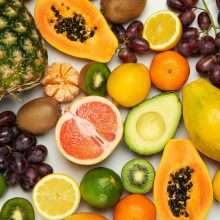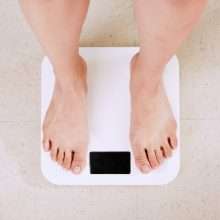7 Kidney Stone Abstinences You Must Know
Kidney stones are diseases caused by mineral deposits in the kidneys and usually block the urinary tract. If the symptoms are still relatively mild, the doctor will advise the patient to take medication from home and pay attention to various taboos for kidney stones so as not to worsen their condition.
So, what are the food and drink restrictions for kidney stones? Let’s see more information through the reviews below.
Kidney Stone Abstinence
Kidney stones are formed from hardened deposits of uric acid or calcium that bind to oxalate or phosphorus chemicals in the urine. The ‘stone’ will clog the urinary tract because the urinary tract cannot remove solids. As a result, there is pain when the patient urinates.
If kidney stones are still small or under 4 millimeters in diameter, this condition can be overcome by adopting a healthy lifestyle and staying away from a number of drinks and foods following kidney stone restrictions.
1. Foods High in Salt
Consuming foods high in salt (sodium) excessively can increase calcium levels in the urine which triggers the formation of kidney stones. In addition, increased sodium levels can also reduce citrate excretion in the kidneys, this condition makes the urine pH acidic and increases the risk of kidney stone formation.
Patients with kidney stones are advised to limit their daily salt intake to 2.3 grams. However, if kidney stones were previously caused by salt, then the patient can limit daily salt intake to 1.5 grams.
Several types of high-salt foods that people with kidney stones need to avoid include fast food, canned food, and dairy products.
2. Animal Protein
Patients with kidney stones must also limit their intake of foods that contain animal protein, such as poultry, eggs, red meat and seafood. This is because animal protein can change the pH of the urine to become acidic, which increases the risk of kidney stone formation.
To compensate, you can consume vegetable protein in addition to animal protein to meet the body’s daily protein intake needs.
3. Food and Beverages with Added Sugar
The next taboo for kidney stones is consuming foods and drinks that contain added sugar. Apart from salt, people with kidney stones are advised to limit consumption of foods and drinks high in sugar. The types of sugar that are often found in food and drinks are sucrose and fructose, both of which can increase the formation of kidney stones because they increase the release of uric acid, calcium phosphate, and calcium oxalate, which are compounds that form kidney stones.
Soft drinks are also one of the prohibition drinks for kidney stones because they contain high phosphates. Phosphate that is too high will pull calcium from the bones so that the kidneys have to filter out more calcium. If the kidneys are deficient in fluids, calcium will bind to other compounds, such as phosphate and oxalate, and form kidney stones.
4. High Oxalate Foods
Oxalates are organic compounds that are found in many natural sources, such as fruits, nuts, seeds, and vegetables. Patients with kidney stones need to limit their intake of oxalate because it can lead to deposits that trigger the formation of kidney stones. A number of food taboos for kidney stones that have a high oxalate content are spinach, beets, chocolate, almonds, peanuts, and sweet potatoes.
5. Drinking less water
Activities that should not be done by people with kidney stones are skipping drinking water and letting the body lack fluids. Lack of fluid consumption will cause stone excretion to be obstructed, and the risk of getting bigger due to a collection of compounds secreted by the kidneys. Adequate fluid intake can help the process of removing small kidney stones through the urine.
Adequate body fluid needs can help the kidneys remove waste products that are not needed through urine and dilute chemicals that trigger the formation of kidney stones. You are advised to meet your body’s fluid needs by drinking approximately two liters of water per day.
6. Consuming Vitamin C in excess
The next taboo for kidney stones is consuming excess vitamin C. This is because excess vitamin C can increase oxalate levels in the body which triggers kidney stones or deposits.
The recommended daily intake of vitamin C is 45 milligrams per day and the dose limit that can still be tolerated by the body is 2000 milligrams per day. To prevent excessive intake of vitamin C, people with kidney stones should meet their nutritional needs through foods that contain vitamin C rather than taking supplements.
7. Using Certain Drugs
Taking drugs excessively or without a doctor’s supervision can also trigger the formation of kidney stones. Some of these drugs include antibiotics , antacids, aspirin, or diuretic drugs. Therefore, sufferers of kidney stones are advised to consult and take medicines according to a doctor’s prescription.
Food for Kidney Stone Sufferers
In addition to avoiding some of the food and drink restrictions for kidney stones above, sufferers are recommended to increase their consumption of the following foods:
- Citrus fruits, such as oranges and lemons.
- Mineral water.
- Low fat milk.
- Peas, beans, soybeans and kidney beans.
- Broccoli.



